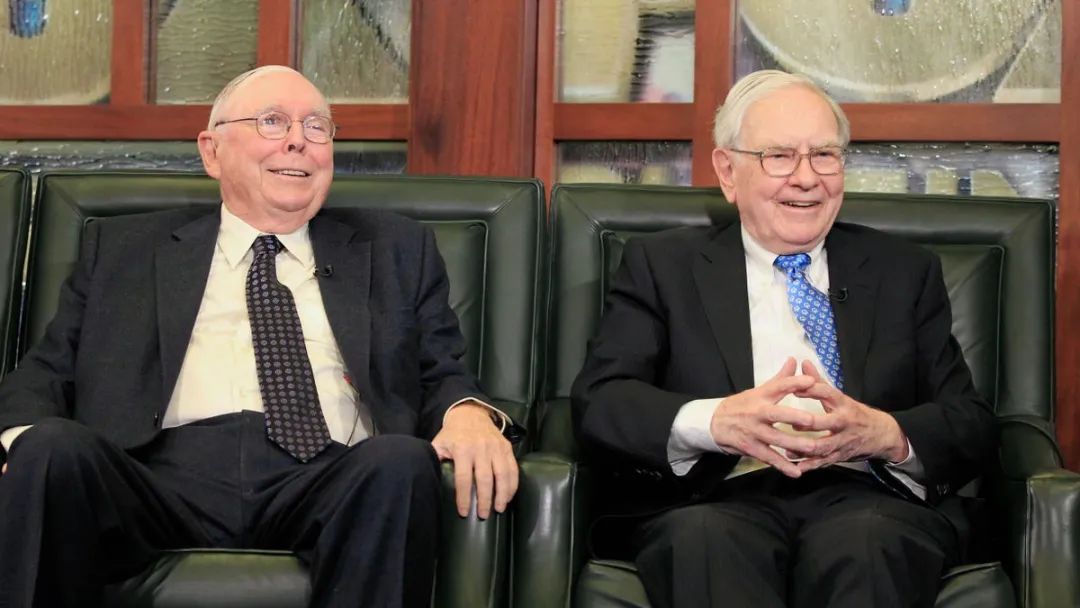每年5月份,初夏,在美国小镇奥马哈,沃伦巴菲特和查理芒格都会举行长达6小时的伯克希尔哈撒韦公司年会。年会上有个传统环节,由股东现场提问,巴菲特和芒格现场回答。这个环节占用了年会绝大部分时间,里面很多问题都非常有趣,包含了看待事物的方式、人生哲理、投资方法。
目前能搜罗到的伯克希尔年会问答实录,从1994到2023合共三十年,当时读的是中文翻译的版本。读完之后想再读,但我想既然再读为啥不直接读英文原版呢,于是找到了英文原版重读,同时这次做了一些精彩的摘录。当然了,其他部分也很精彩,只是我对这些摘录更有共鸣,你去读有共鸣的部分肯定是不一样的,所以推荐大家去读全文。这份问答录适合想在生活中和工作中获得长久的独立、充实、理性、愉悦的人。
人生中能找到一个品行卓越的老师,并且他还可以以某种方式深入地影响你,是一辈子最幸运的事情。沃伦巴菲特找到了本格雷厄姆,查理芒格找到了本杰明富兰克林。
以下以摘录的形式,把某个问题的原文原封不动摘录下来,然后某些段落后面加上我自己的感想。
————
“Growth alone doesn’t make a company a good investment”
WARREN BUFFETT: Zone 3?
AUDIENCE MEMBER: I’m Howard Bask (PH). I’m from Kansas City.
When you are estimating a growth rate on a company (inaudible), a very predictable company, I imagine you apply a big margin of safety to it. What kind of rate do you generally apply? I mean, high single digits?
WARREN BUFFETT: In the margin of safety, or —
AUDIENCE MEMBER: What kind of growth rate would you, on a predictable company, might you —
WARREN BUFFETT: We are willing to —
AUDIENCE MEMBER: — stab at?
WARREN BUFFETT: — buy companies that aren’t going to grow at all.
AUDIENCE MEMBER: OK.
WARREN BUFFETT: It — assuming we get enough for our money when we do it. So, it — we are not looking — we are looking at projecting numbers out, as to what kind of cash we think we’ll get back over time.
有人问巴菲特买公司的标准,一般要多少增长率的公司才能入选投资标的。答案是,即使完全不增长的公司也可以。一家公司的价值是由它生命周期内所能产生的现金流总量来决定的,把这些现金流以一定的利率折现回来,就是现在的价值。经常会有人说成长型投资、价值型投资,似乎成长型就可以名正言顺不赚钱了,可以不产生现金流了,可以给更高的估值了。实际上,我认为这是知其表而不知其里,一家成长型公司最终也需要从投入的资本中生产出更多的钱,未来可预期收到的现金多了,估值才能上去。否则,就是在玩一种击鼓传花的游戏,这种游戏不管未来实际如何,只需要把公司粉饰一番讲讲故事,期待下一个买家出更高的价格来买自己手上的股份。
But you know, would you rather have a savings — if you’re going to put a million dollars in a savings account, would you rather have something that paid you 10 percent a year and never changed, or would you rather have something that paid you 2 percent a year and increased at 10 percent a year? Well, you can work out the math to answer those questions.
But you can certainly have a situation where there’s absolutely no growth in the business, and it’s a much better investment than some company that’s going to grow at very substantial rates, particularly if they’re going to need capital in order to grow.
在不同的生意里面公司的经济特征也是天差地别的,一个生意往往有两种资本投入:增长资本投入和维护资本投入。有些生意的收入增长和维持现有的竞争地位要依靠投入大量的资本,比如建设厂房购买设备增加库存,一年到头不但经营现金流全都砸在购买资产里,很可能还要依靠借债增发新股的融资现金流来购买资产;而某些公司只需增加很少厂房设备库存就能实现收入增长和维持竞争力,每年就可以留下很多现金流。这两者是截然不同的。大抵上来说,公司经营活动减去投资活动,剩下的现金流才是真正属于股东可以揣进口袋的现金流。
There’s a huge difference in the business that grows and requires a lot of capital to do so, and the business that grows, and doesn’t require capital.
And I would say that, generally, financial analysts do not give adequate weight to the difference in those. In fact, it’s amazing how little attention is paid to that. Believe me, if you’re investing, you should pay a lot of attention to it.
Charlie?
CHARLIE MUNGER: I agree with that. But it’s fairly simple, but it’s not so simple it can all be explained in one sentence. (Laughter)
WARREN BUFFETT: Our — some of our best businesses that we own outright don’t grow. But they throw off lots of money, which we can use to buy something else. And therefore, our capital is growing, without physical growth being in the business.
And we are much better off being in that kind of situation than being in some business that, itself, is growing, but that takes up all the money in order to grow, and doesn’t produce at high returns as we go along. A lot of managements don’t understand that very well, actually.

精彩评论